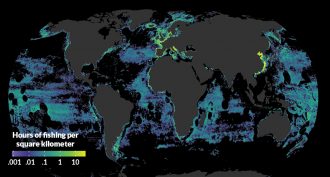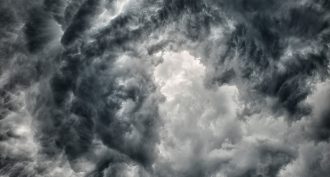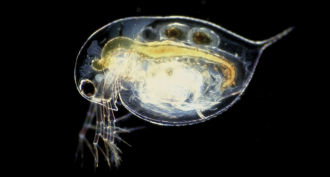Earth
-
 Climate
ClimateAnalyze This: Climate change could make food less healthy
Levels of important nutrients are lower in crops exposed to high levels of carbon dioxide, a greenhouse gas. How high? Try levels expected to be typical 30 years from now.
-
 Oceans
OceansMore than half the world’s ocean area is actively fished
Fleets harvest fish from 55 percent of the world’s total ocean area. Just a handful of countries play an outsized role fishing the open ocean, far from coasts.
-
 Earth
EarthScientists Say: Inclusion
As rocks form slowly, they can trap things in their timeless clutches. A material trapped inside a mineral is called an inclusion.
-
 Ecosystems
EcosystemsExploring the mysteries of Cuba’s coral reefs
Researchers are studying the mysterious lives of creatures in and near Cuba’s coral reefs. What they learn could help protect ocean life globally.
By Bryn Nelson -
 Ecosystems
EcosystemsMigrating crabs take their eggs to the sea
Cuba’s colorful land crabs connect swamp and sea with their yearly mass migrations. Protecting their routes can help other animals too.
By Bryn Nelson -
 Genetics
GeneticsExplainer: DNA hunters
Snippets of DNA can be left behind by a passing organism. Some researchers now act as wildlife detectives to identify the sources of such cast-off DNA.
-
 Physics
PhysicsExplainer: What is thundersnow?
Wacky weather produced lots of thundersnow during New England’s recent winter storms. Some scientists now suspect Mother Nature got some human help.
-
 Environment
EnvironmentHousehold products can really pollute the air
Auto exhaust isn’t the only major sources of air pollution, indoors and out. A new study finds a laundry list of household products can — when used by millions — match the contributions of traffic.
-
 Environment
EnvironmentFish get pooped living in polluted water
Living in polluted water can tire fish out, a new study finds. This can make it harder for them to find food and avoid being eaten, themselves, by predators.
-
 Climate
ClimateSuper-tiny pollutants may help fire up fierce storms
Tiny pollutant particles floating in air may help create clouds and wind, strengthening storms.
-
 Agriculture
AgricultureNew ‘tattoo’ could lead to drought-tolerant crops
Scientists create stick-on 'plant tattoo.' It measures how efficiently crops use water, a key to better identifying breeding stock for more drought-resistant crops.
-
 Animals
AnimalsRising carbon dioxide could leave tiny lake dwellers defenseless
Rising carbon dioxide in freshwater lakes may change how predators and prey interact.